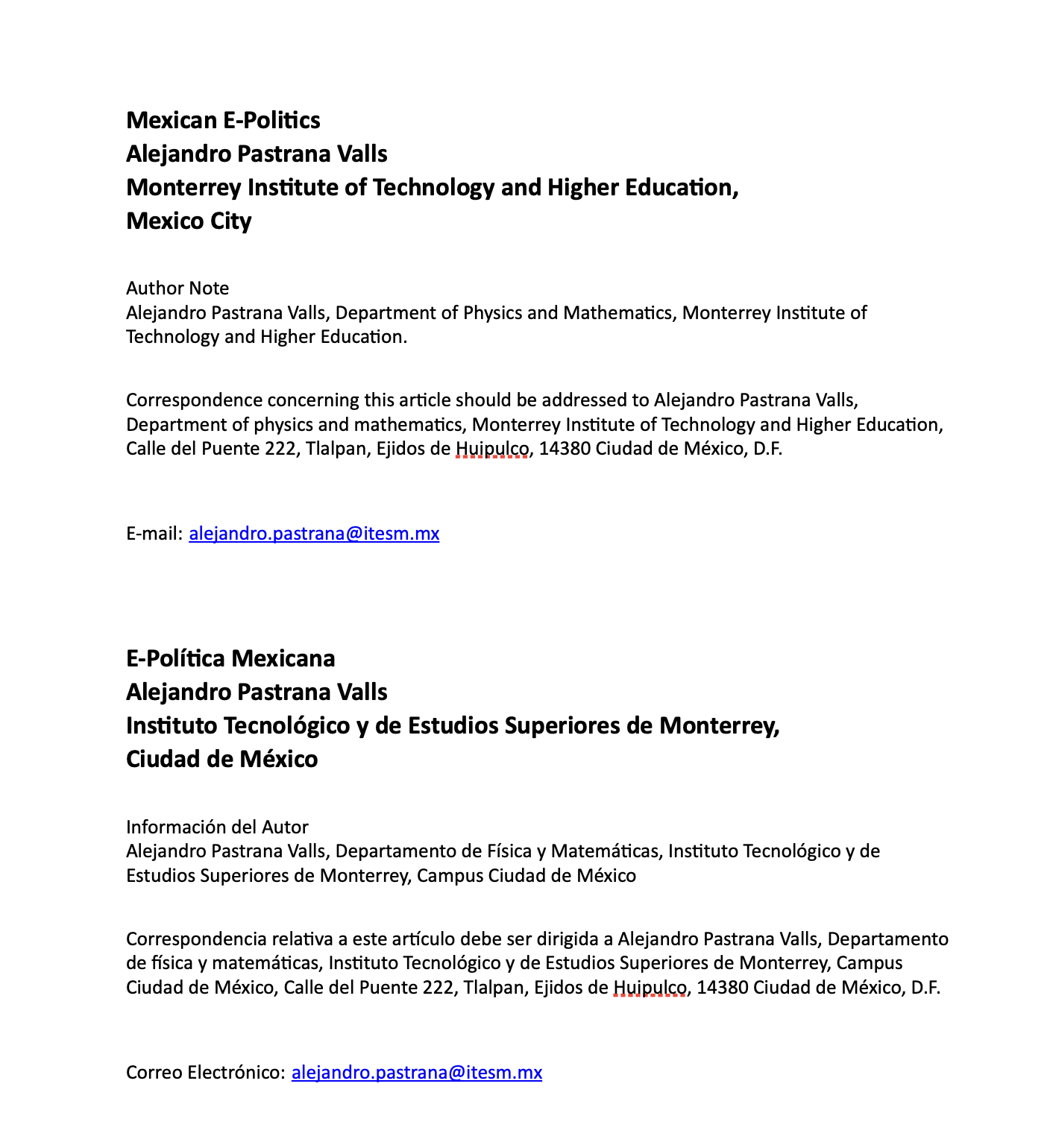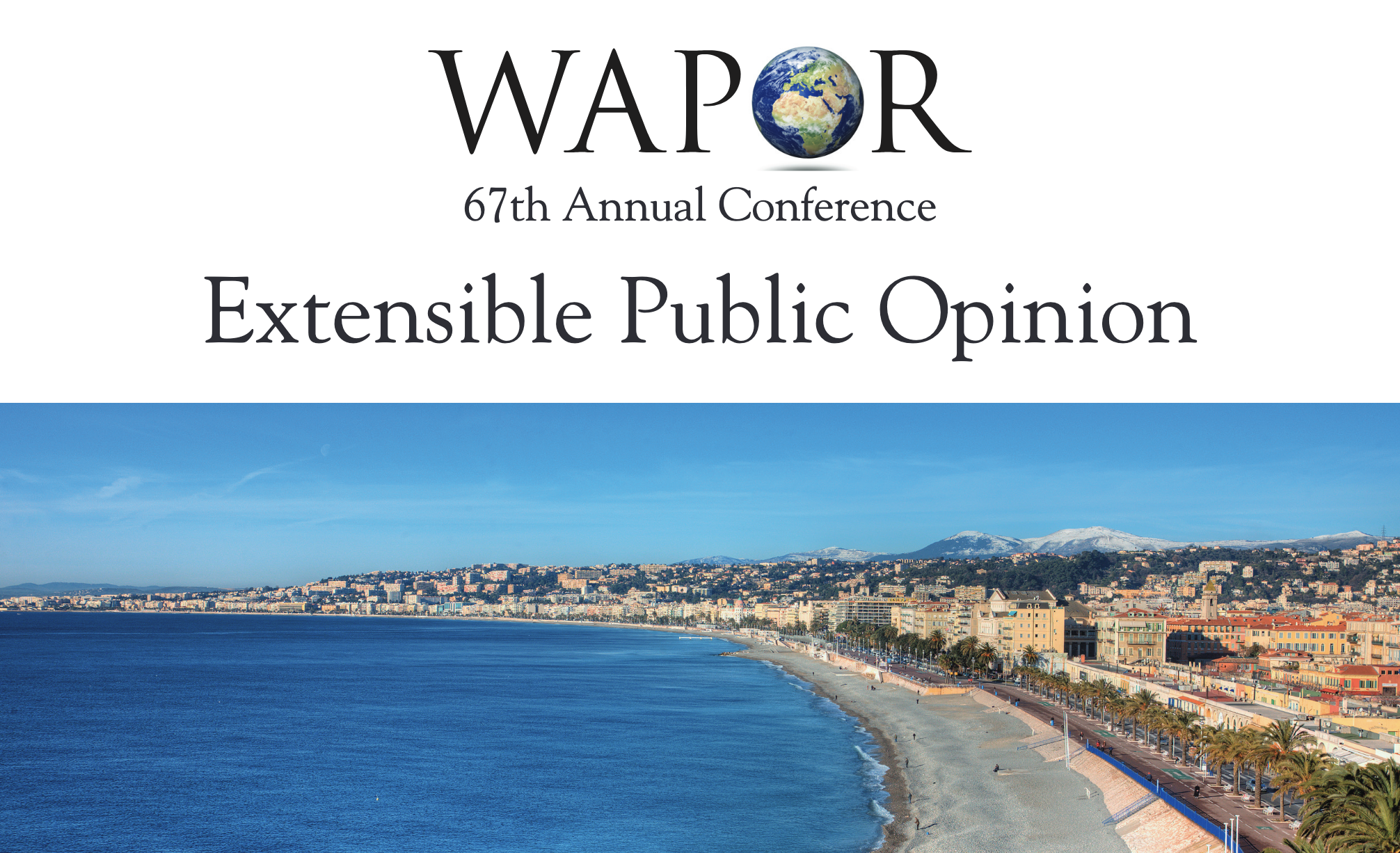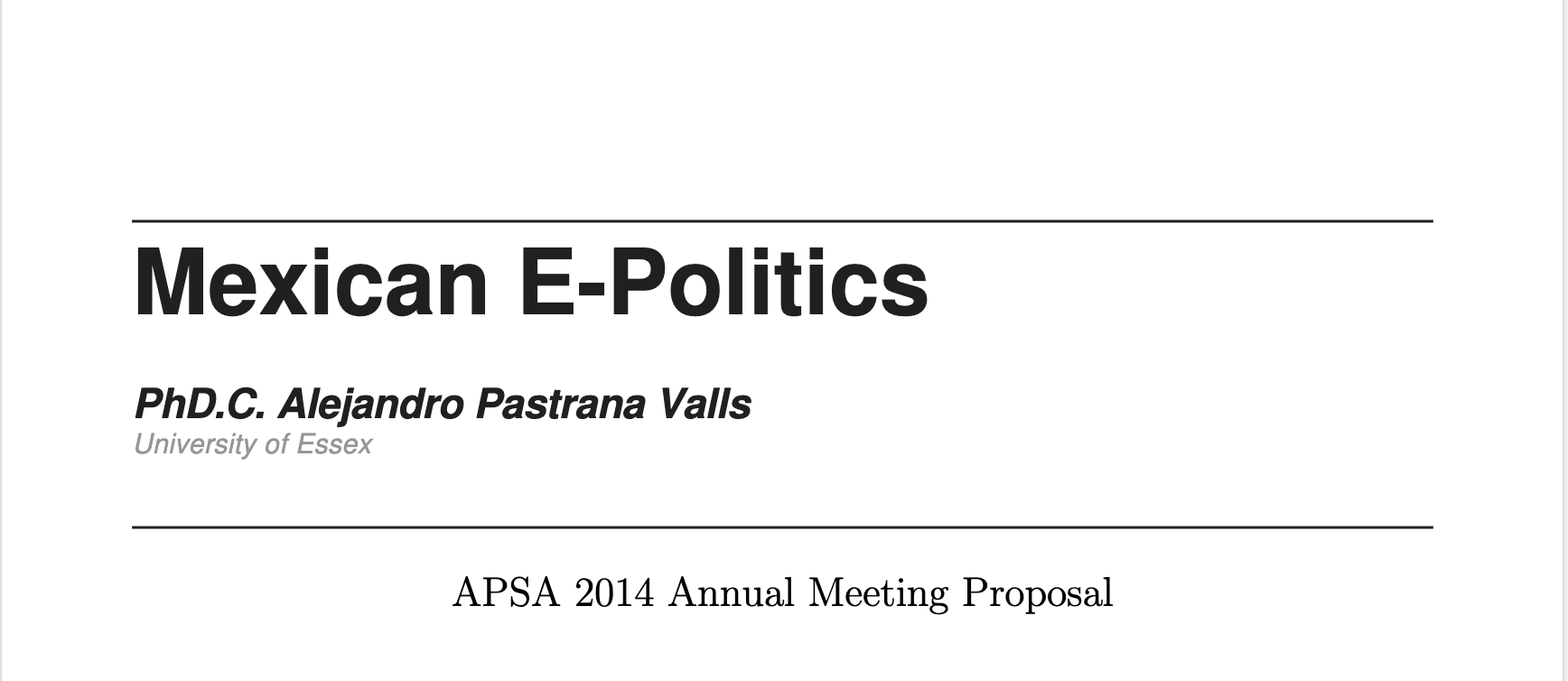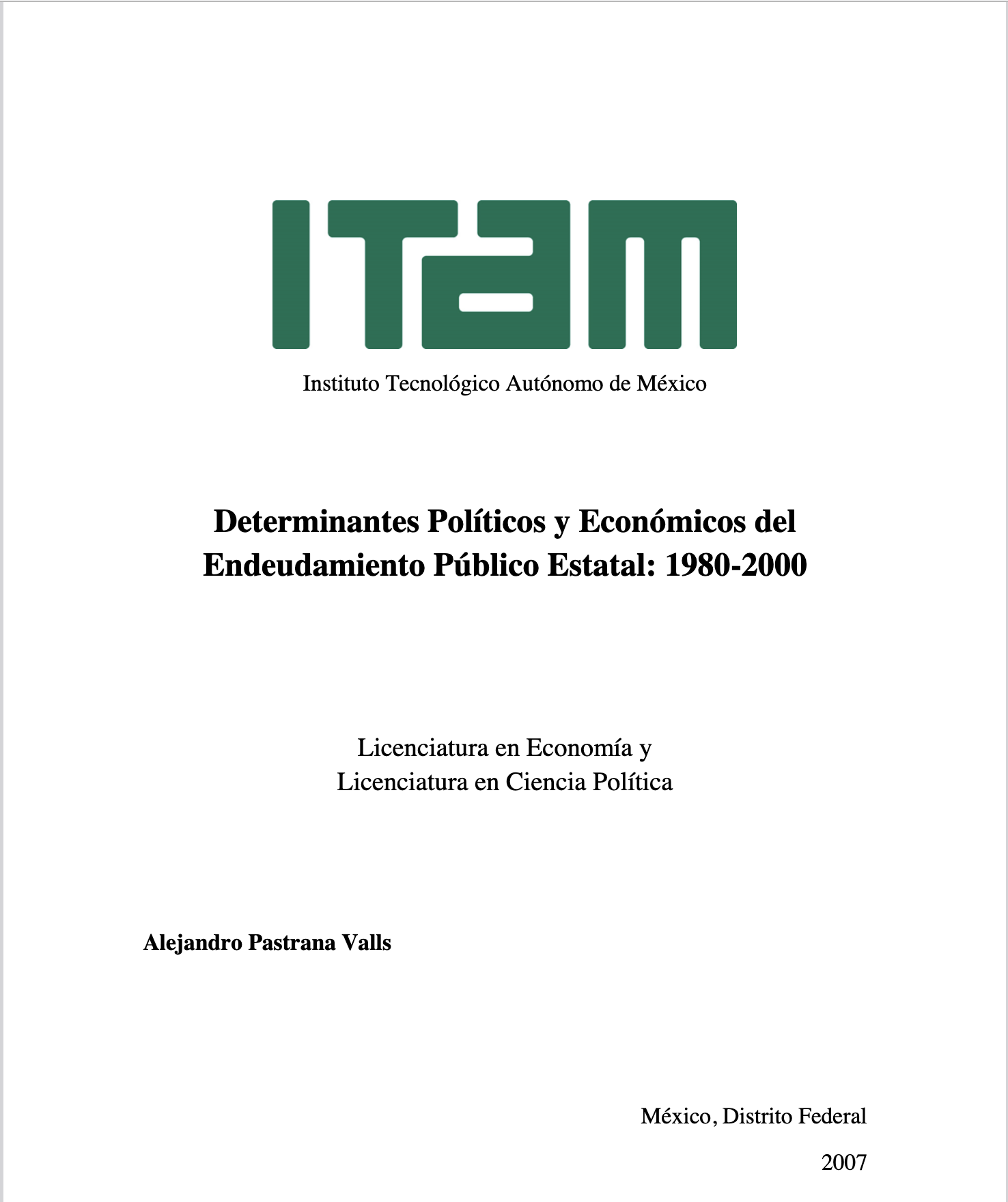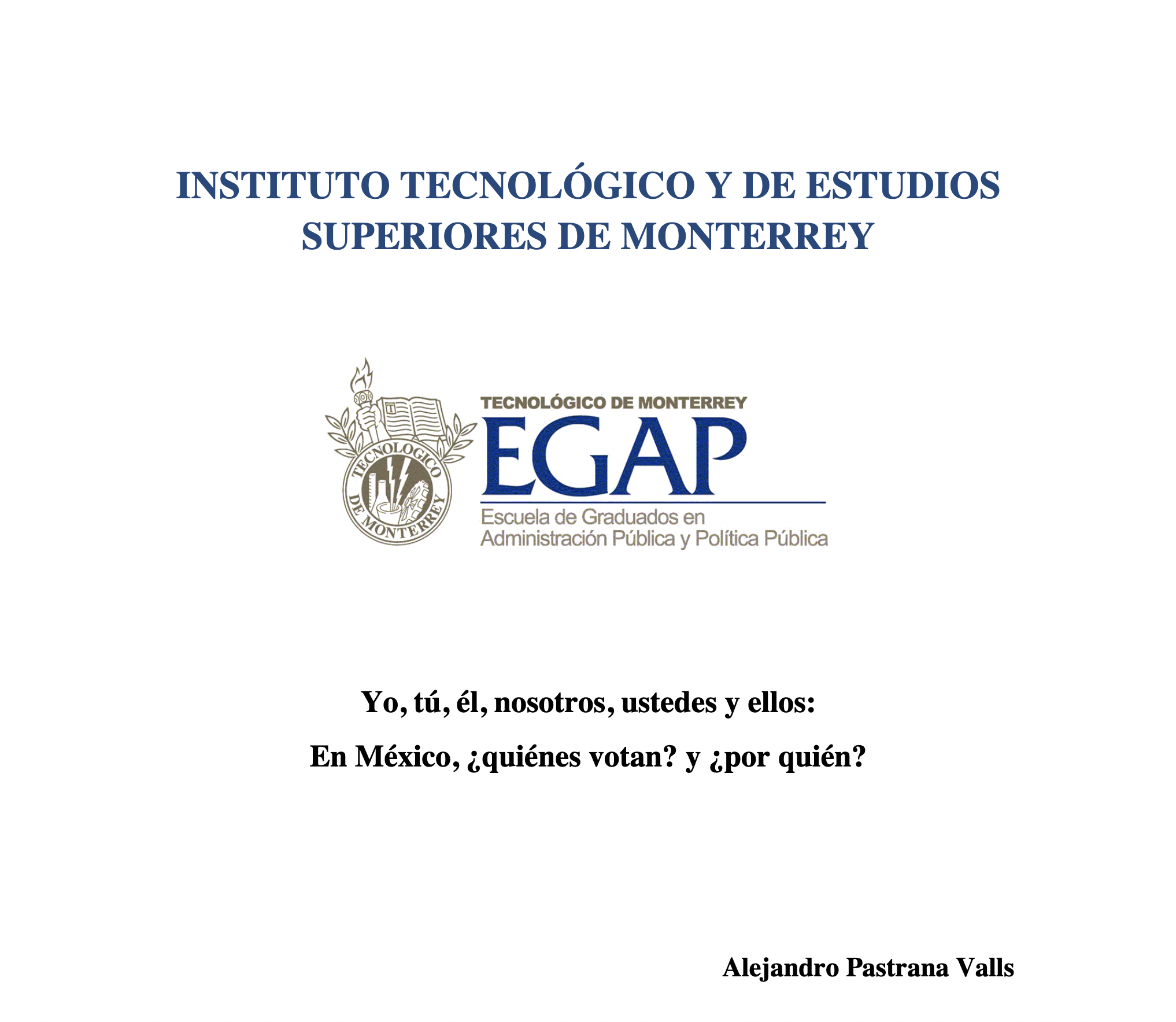Mexican E-Politics
Post Date:
DraftsMexican E-Politics
This investigation suggests that depending on the source of information – whether traditional media or social media – citizens with greater skills to process political information will evaluate the political parties differently; therefore their decision to vote is influenced by the source of information. The new technological tools have an important effect on citizens’ vote choice; these new tools have an opposite effect of what is presented with the traditional source of communication. To develop the analysis through the document, a latent variable related to citizens’ cognitive mobility is constructed – understood as the skill to process political information- from observed variables (subjective income, education and interest in politics). This document focuses of the effect that cognitive mobility has on political behaviour (to vote or not) and the influence that these variables have on the decision of which political party to vote for. This essay also investigates the influence that the traditional tools of communication (radio, television and newspapers) and new technological tools (social networks: Twitter, Facebook, YouTube) have on vote choice. Then, this document explores the implications of birth cohort for political participation and the impact these distinct forms of information (traditional or social media) have on each generation’s political behaviour. The cognitive mobility variables are generated using exploratory and confirmatory factor analysis, and then we will test the hypotheses using logit models. For the analysis of different generations multigroup logit models are used. EFA and CFA; were estimated using M-Plus version 7 and the logit and logit multrigroup models are generated using Stata version 12.
Last Update: Oct. 10, 2016
